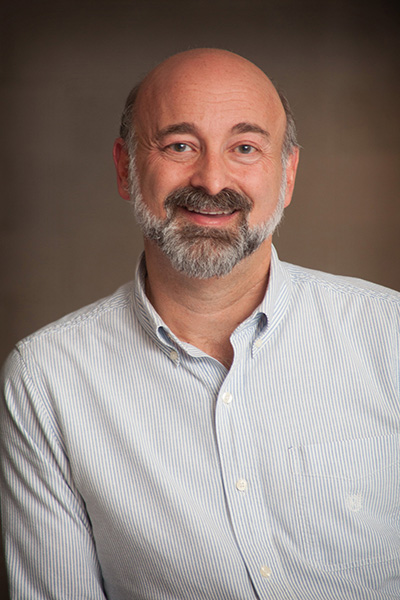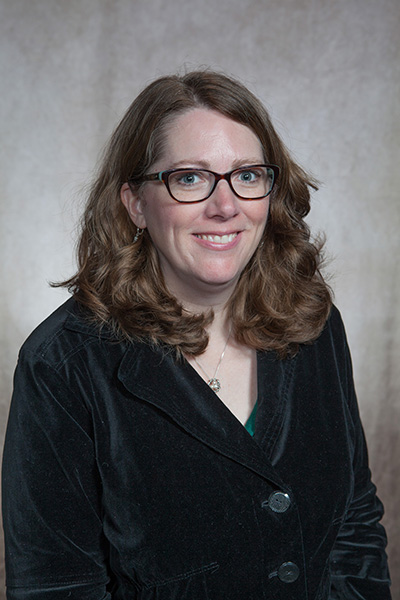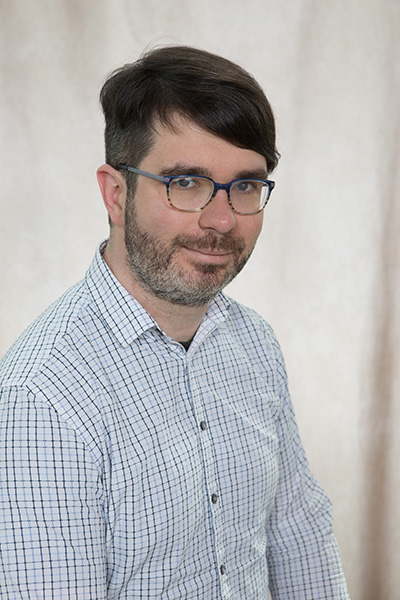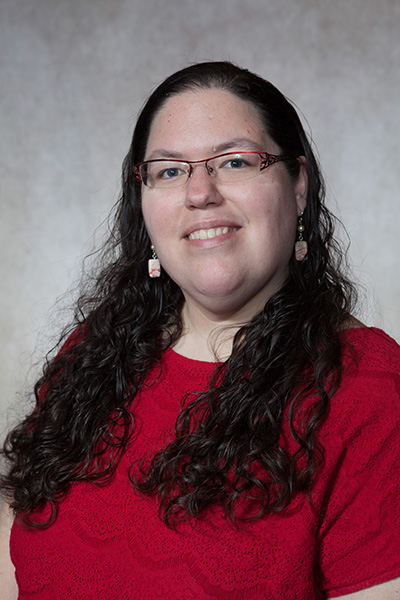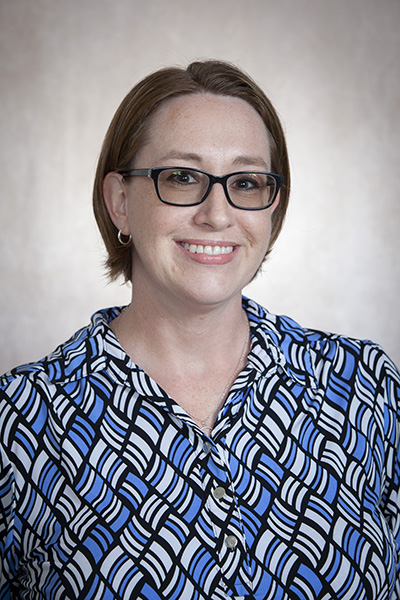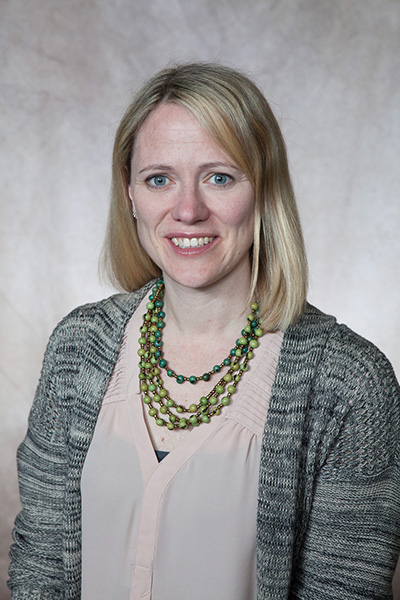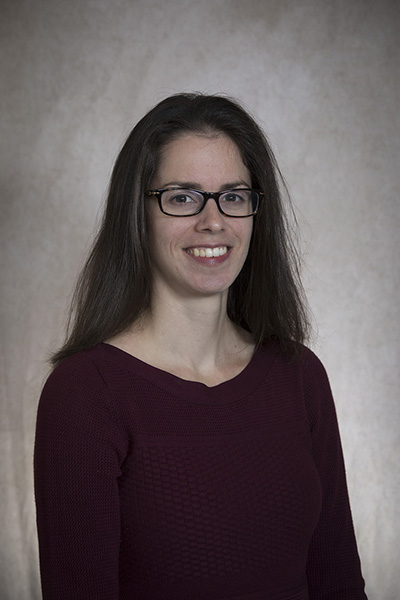- Apply
- Visit
- Request Info
- Give
Psychology faculty direct 6 research labs this fall
Written by Dwight Bachman
Published on August 20, 2021
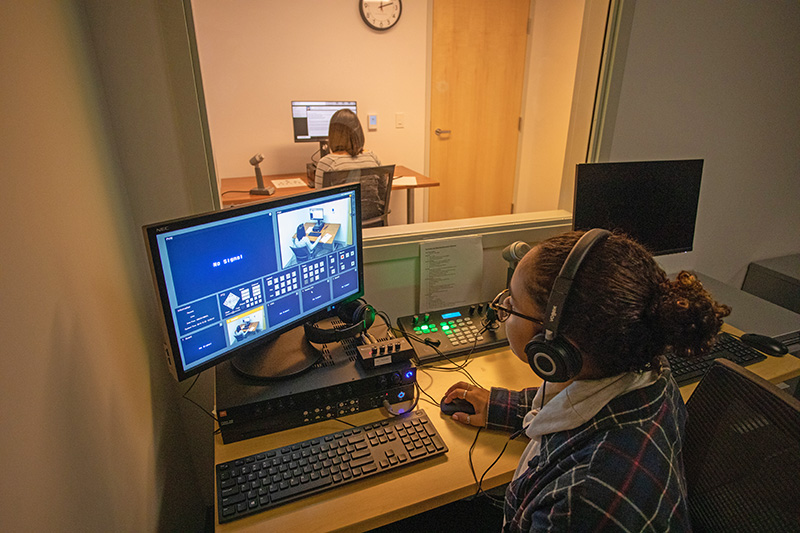
The faculty in Eastern Connecticut State University’s Psychological Science Department mentor undergraduate students in a range of research projects to provide hands-on application of classroom concepts and theories. To support those efforts, six new psychology labs will open this fall.
Professors James Diller and Kristalyn Salters-Pedneault direct the Behavioral Laboratory of Emotion and Psychophysiology. Diller is a behavior analyst and Salters-Pedneault is a clinical psychologist. Together, they engage in transdisciplinary research, exploring the interactions between psychophysiology and behavior.
“Kristi Salters-Pedneault and I will be working with our students to teach them how to use psychophysiological equipment,” said Diller. “They will learn how to run research participants through an experimental protocol and collect and analyze heart rate and skin conductance data. We will also be working with them to read and critique scientific journal articles. This laboratory experience will help our students to develop their research and critical thinking skills, which will help them to be successful in graduate school or employment of their choosing.”
The Laboratory of Cognition, Attention and Search (LoCAS) is directed by Professor Lyndsey Lanagan-Leitzel and used to investigate visual search and surveillance among lifeguards. The LoCAS lab is one of the resources for Eastern’s new concentration in Cognitive Neuroscience.
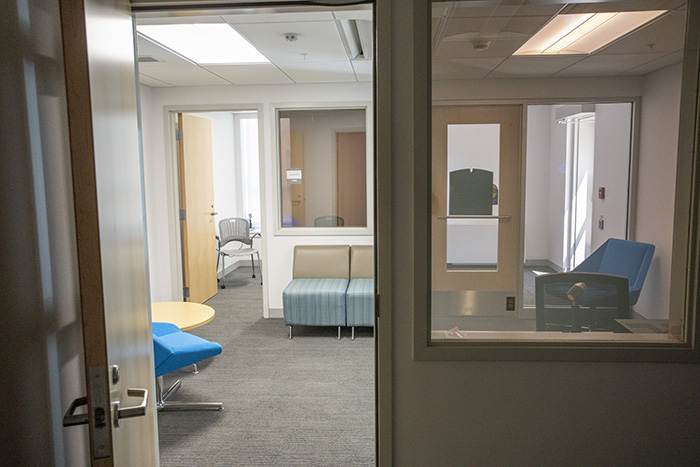
Lanagan-Leitzel appreciates collaborating with colleagues as she studies cognition as it applies to and occurs in the real world. “I study lifeguard surveillance, sometimes using eye-tracking technology. Lots of researchers in my field study “visual search” — how people look for things — but most of them focus on baggage screening, like TSA agents do, or radiology. Lifeguard surveillance is different because you are looking for an event that unfolds over time, not an object that is either there or not, but similar processes are occurring in both tasks. I’m one of the few people in the world who study lifeguard surveillance with visual cognition laboratory methods.”
Lanagan-Leitzel has also worked with Business Administration Professor Sukeshini Grandhi to study the use of “reply all” in email communications and the impact of video conferencing on cognition. They examined whether the interface design could affect inappropriate “reply all” use and found, instead, that people’s choice of “reply” versus “reply all” might be influenced by not knowing what is appropriate or what the sender wants. Results of the study were published in 2016.
“The Reply All study was prompted by the many Reply All emails we all get on the faculty and staff list serves. I was talking to Suki (Grandhi) one day and I commented that so many people accidentally Reply All and we thought it would be fun to try to see why. Those are the sorts of research questions I love — the ones where there hasn’t been a lot of prior research.”
Lanagan-Leitzel has also worked with Diller to do pedagogical research, teaching first-year students psychological critical thinking skills and then evaluating their performance in written analyses.
Professors Alita Cousins and Madeleine Fugère direct the Social and Evolutionary Psychology Lab, which is used to explore how evolution has shaped our minds and behavior. Most of this lab's research centers around conflict in romantic relationships. “Due to the pandemic, our research team has shifted to collecting data entirely online,” said Fugère. “We are still looking at similarities and differences in women’s mate preferences and their parents’ preferences for mates for their daughters.”
Professor Jenna Scisco directs the Health and Human Performance Laboratory, combining health psychology, biopsychology and human factors psychology with the goal of helping people to improve their health, performance and overall quality of life.
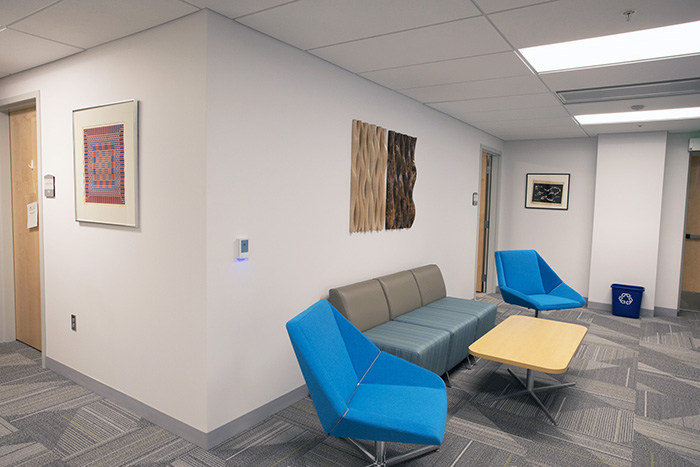
Professor Jennifer Pickard Leszczynski directs the Life-span Developmental Psychology Lab. This lab focuses on how self-perceptions and stereotypes about others’ gender and age change in different situations and across the lifespan. Her research also examines how gender and age affect our perceptions about love and romance.
Professor Peter Bachiochi directs the Organizational Research Group, which conducts research on campus and in organizations addressing workplace attitudes and behaviors of employees as well as Eastern students. “In the Organizational Research Group’s lab, we investigate topics like work/life balance, work/school balance, leisure time, and various diversity and inclusion topics,” said Bachiochi. “By working collaboratively with me and/or on independent projects, the students enhance their teamwork, research, critical thinking and writing skills that employers seek in any position.”
Lanagan-Leitzel said a welcoming workplace awaits Eastern students majoring in Psychology who have conducted research in Eastern’s laboratories. “Students who do research with our talented faculty are qualified upon graduation to work as research associates or research coordinators. If they pursue master’s or doctoral training, there are many careers available to them in health care, social assistance, and professional, scientific and technical services.”



